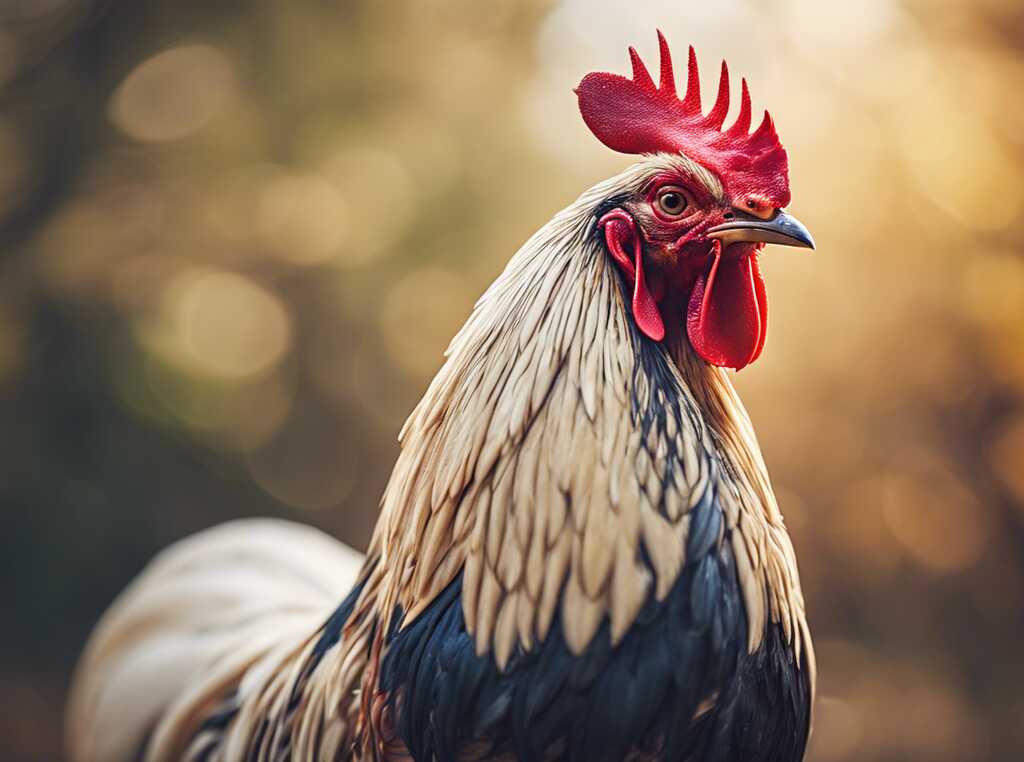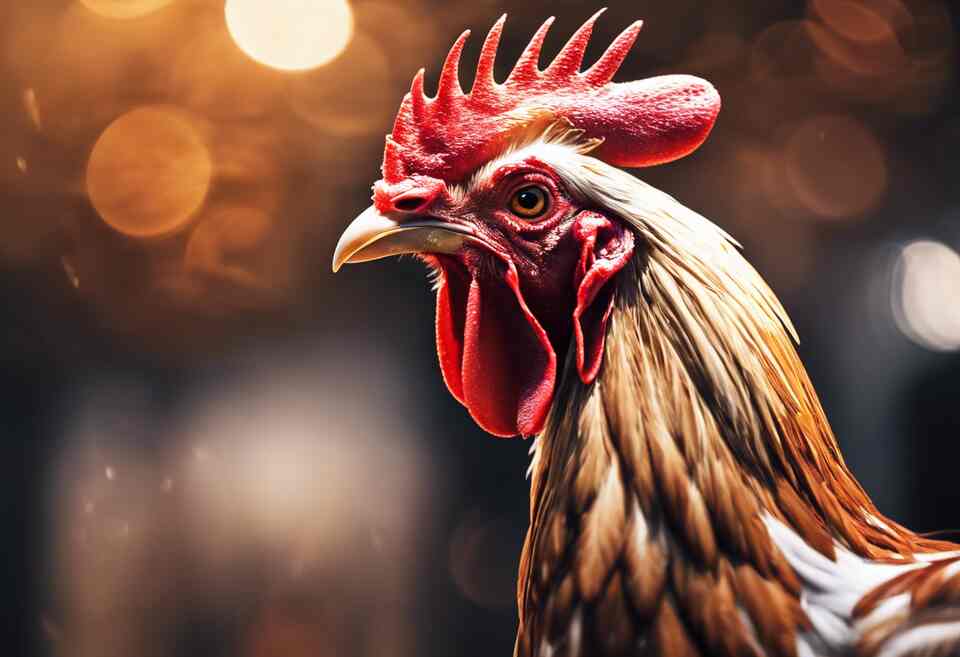Roosters have long been known for their distinctive crowing, a behavior deeply ingrained in their nature and widely recognized as a symbol of the break of dawn. However, the motivation behind their early morning vocalizations goes beyond simply marking the start of a new day. Understanding the significance of roosters’ crowing behavior offers valuable insights into their role in the animal kingdom and sheds light on their intricate communication mechanisms.
Table of Contents
The Significance of Roosters’ Crowing
Evolutionary Purpose of Crowing
Roosters crow not only to proclaim their territory but also to establish their dominance within the flock. This crowing behavior is deeply rooted in their evolutionary history, serving as a means to attract mates and defend their hens from rival males. By asserting their presence through crowing, roosters communicate their strength and vitality, crucial factors in securing their position in the pecking order.
Communication and Social Hierarchy
Roosters often engage in crowing to communicate with other members of the flock. Through their vocalizations, they convey important information regarding food sources, potential threats, and other environmental cues. Additionally, crowing plays a significant role in establishing and maintaining the social hierarchy within the flock. Strong, frequent crowing is often associated with higher-ranking roosters, while subordinate males may exhibit more subdued vocalizations.
Circadian Rhythms and Biological Clocks
The timing of a rooster’s crowing is closely linked to its internal biological clock. Roosters are known to crow at specific times of the day, particularly during the early morning hours. This behavior is not only influenced by external factors such as the first light of dawn but also by internal circadian rhythms. Crowing at dawn helps roosters synchronize their activities with the natural cycles of day and night, ensuring optimal foraging and reproductive opportunities.
Response to Environmental Stimuli
Roosters are highly attuned to their surroundings and often respond to various environmental stimuli through crowing. Changes in light, temperature, and sound can trigger a rooster to crow, indicating alertness and vigilance. In rural settings, roosters may also serve as natural alarms, alerting the flock to potential dangers such as predators or intruders. This heightened sensitivity to environmental cues showcases the adaptive nature of roosters’ crowing behavior.
Cultural and Symbolic Significance
Beyond its biological function, the crowing of roosters holds cultural and symbolic significance in many societies. Across different cultures, the crowing of a rooster is often associated with themes of vigilance, rebirth, and the passage of time. In some traditions, the crowing of a rooster is believed to ward off evil spirits or bring good luck. This symbolic resonance highlights the enduring impact of roosters’ crowing behavior on human imagination and folklore.
The crowing behavior of roosters serves as a multifaceted and dynamic aspect of their identity within the animal kingdom. From its evolutionary origins to its role in communication and social dynamics, roosters’ crowing behavior continues to captivate and intrigue observers worldwide. By exploring the complexities of this behavior, we gain a deeper appreciation for the rich tapestry of interactions that shape the lives of these remarkable creatures.
Myths and Cultural Beliefs Surrounding the Rooster’s Crow
Roosters have been an integral part of human lives for centuries, with their distinctive crowing being a familiar sound in rural and even urban settings. Across various cultures and regions, the crow of a rooster carries significant symbolic and cultural meanings, often shrouded in myths and folklore. Let’s delve into the rich tapestry of myths and cultural beliefs surrounding the rooster’s crow.
Origins of the Rooster’s Crow
In many cultures, the rooster’s crow is believed to signal the break of dawn, marking the start of a new day. This symbolism of awakening and new beginnings has deep roots in various mythologies worldwide. From ancient Greek mythology, where the rooster’s crow symbolized the victory of light over darkness, to Chinese folklore associating it with good fortune and prosperity, the significance of the rooster’s crow is profound and diverse.
Symbolism in Different Cultures
In Chinese culture, the rooster is one of the 12 zodiac animals, symbolizing fidelity and punctuality. The crow of a rooster is believed to chase away evil spirits and bring blessings for the day ahead. Similarly, in Hindu mythology, the rooster is associated with the god of creation, Brahma, symbolizing the creative forces of the universe.
Omens and Superstitions
The rooster’s crow has long been linked to omens and superstitions in various cultures. In some Western traditions, hearing a rooster crow at night is considered a sign of impending death or bad luck. Conversely, in parts of Africa, the rooster’s crow is seen as a call to wake up and start the day on a positive note.
Scientific Explanations
Beyond myth and folklore, there are scientific reasons behind why roosters crow. Contrary to popular belief, roosters do not just crow at dawn; they crow throughout the day to establish their territory and assert dominance over other roosters. Their crowing is a form of communication, signaling their presence to other chickens and warning off potential threats.
Cultural Practices and Rituals
In many rural communities, the rooster plays a central role in cultural practices and rituals. From wake-up calls for farmers to being used in traditional ceremonies and celebrations, the rooster’s crow is woven into the fabric of daily life. In some cultures, the timing and direction of a rooster’s crow are believed to hold clues about the future, influencing decision-making and planning.
The rooster’s crow transcends mere noise; it carries layers of symbolism, myth, and cultural significance that have endured through generations. Whether heralding the dawn of a new day or serving as a protector against evil spirits, the crow of a rooster continues to capture our imagination and connect us to our rich cultural heritage.
Conclusion
Throughout history, the crow of the rooster has held significant importance both in the animal kingdom and in various cultural beliefs. Roosters crow not just to mark their territories or to wake up the farm, but also as a display of dominance and vitality. Understanding the biology behind this behavior helps shed light on why roosters crow at specific times of the day. Their internal clocks and the stimulation of the sunrise play a crucial role in this natural alarm system.
Moreover, myths and cultural beliefs surrounding the rooster’s crow extend across different cultures and traditions. From heralding the new day to symbolizing good luck, roosters have been revered in various societies. In Chinese culture, the rooster is associated with fidelity and punctuality, while in ancient Greek beliefs, the crowing of the rooster symbolized the victory of light over darkness. These diverse interpretations add depth to the significance of roosters’ crowing behavior.
In modern times, while technology and artificial alarms have taken over the role of wake-up calls, the crow of the rooster still resonates with many people. Its innate ability to announce the dawn and stir life into the day remains a reminder of our deep-rooted connection to nature. It serves as a link to a simpler time when the rhythms of life were dictated by the rising sun and the crowing of roosters.
As we delve deeper into the reasons behind why roosters crow, we uncover a rich tapestry of biology, behavior, and cultural symbolism. The next time you hear the unmistakable crow of a rooster, take a moment to appreciate the marvel of nature’s alarm clock and the centuries-old traditions that continue to echo through its call. Let the crow of the rooster serve as a reminder of the interconnectedness of all living beings and the timeless rituals that bind us to the natural world.



